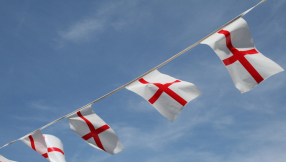
The Salvation Army has welcomed a debate initiated by Ed Miliband in Parliament yesterday about the Labour Party's proposal to restrict the growth of betting shops and gambling machines.
The Church labelled them "a problem which demands action".
Prime Minister David Cameron admitted that "there are problems in the betting and gaming industry and we need to look at them".
However, he claimed that more evidence as to the detrimental effect of fixed-odds betting terminals (FOBTs) is needed before significant changes are made.
Public affairs advisor for The Salvation Army, Gareth Wallace disagreed and called for urgent action to be taken.
"FOBTs are the third largest source of problem gambling amongst those who have gambled in the past year," he said. According to the British Gambling Prevalence Survey 2010, the last official national gambling survey, there are over 400,000 individual problem gamblers in the UK, while a further 3.56 million are 'at-risk'.
"Since the Gambling Act came into force, the total number of gambling addicts increased by more than 50 percent between 2007 and 2010," Wallace noted, suggesting that FOBTs have had a significant role in increasing gambling addiction– there are currently 33,209 of the machines in the UK.
The Salvation Army is backing Labour's demand that greater restrictive powers be granted to local authorities to deal with the problem of gambling addiction.
Labour has promised to change laws that limit the power of councils to reduce the number of bookmakers on their high streets if they win the next election, with Miliband saying FOBTs are "spreading like an epidemic" and "causing debt and misery".
During the Prime Minister's Question Time in the Commons, Cameron claimed: "Councils already have powers to tackle the issue and I believe councils should make full use of that power."
In response to the Prime Minister's comments, Wallace said: "We believe local authorities are vulnerable to repeated legal appeal by the gambling industry. Local authorities need the power to simply say no to a betting shop in their area without having to pass on expensive legal appeals costs to council tax payers."
The Salvation Army is urging MPs to tighten regulation of FOBTs in high street betting shops "in order to address the rising costs associated with problem gambling, protect vulnerable individuals, and foster thriving high streets and communities".
Other recommendations from the Army are to reduce the stakes or prizes of betting machines, to introduce measures that remind customers how much they have spent, and to increase the ability of local authorities to veto the construction of bookmakers in their jurisdiction.
Wallace concluded: "Every year in the UK people lose more than £1 billion on FOBTs, problem gamblers lose nearly £300 million a year on these machines.
"As a Church and charity The Salvation Army stands alongside people who are vulnerable or in need in every community and we believe these official statistics clearly demonstrate that these gambling machines are a problem which demands action."













